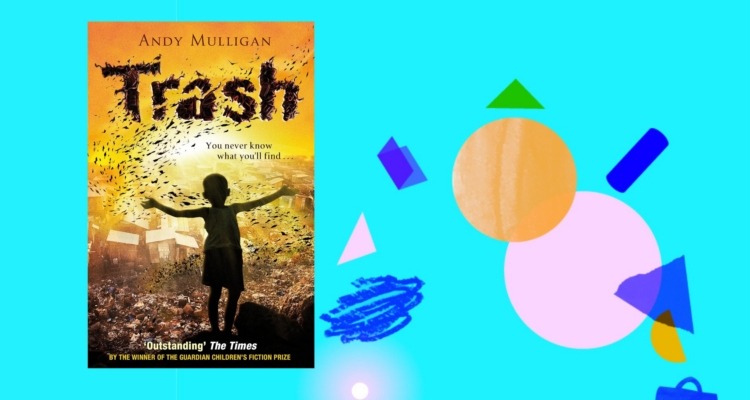Featured Poem: Lost Time by Rabindranath Tagore
This week in our special series of poems to help us through the testing times ahead, Kate Weston, The Reader's Manchester Hub Leader, shares her thoughts on Lost Time by Rabindranath Tagore.
Over the past few weeks, I, like many other people, have struggled to find the words to articulate how I'm feeling. There have been times when I've felt frustrated with myself for falling into particular patterns of language, writing yet another email or text message mentioning 'these strange times' and feeling that somehow my words are not enough. Whilst reading poetry has brought me solace and released me from some of the constraints of familiar language, if I'm honest, I've sometimes struggled to concentrate and connect, even with the poems that might usually comfort and move me.
Reading 'Lost Time' by Rabrindranath Tagore gave me a new perspective, however; serving as a poetic breath of fresh air to revive my tired mind. Although it is a short poem, and perhaps less challenging than other Featured Poems, it resonated with me at this point in time in a way that others have not. Indeed, the first line seemed to encapsulate so much of how I had been feeling (but felt unable to fully express) that I kept returning to and thinking about it.
‘On many an idle day have I grieved over lost time’.
When we think of the word ‘idle’, many of us often associate it with laziness and passivity, long days of nothing. We live in such a fast-paced society that when we are still and inactive, it is often thought of as idleness, and - although I don’t usually subscribe to this idea - I have found myself recently lamenting the cancellation of many social events with friends and family, and, in particular, comparing my seeming lack of activity to the tireless efforts of front-line workers. Whilst we can only guess at who the person in the poem could be and why they might feel this way, I can most certainly relate to this idea that time has been ‘lost’ - feeling that somehow, by not being quite as industrious or active as I was before, I’m not being useful or making the most of my life. It seems inappropriate to talk of grieving over lost time at such a challenging time for so many people, and yet I wonder, what really is grief and is this notion of having ‘grieved over lost time’ something that we can all relate to?
From this initial thought, the conviction of the speaker that time ‘is never lost’ gives me a sense of peace and comfort, though I feel compelled to question who the person in the poem is talking to and how we might interpret the line, ‘Thou hast taken every moment of my life in thine own hands’, in light of our own thoughts about who or what shapes the paths and moments of our lives. Whatever our individual belief systems, the growth and movement in the lines ‘thou art nourishing seeds into sprouts, buds into blossoms, and ripening flowers into fruitfulness’ gives me some reassurance that although we may feel inactive at the moment, both as individuals and as a society, the work of nature never ceases. There is a serenity in literally watching the process of buds turning into blossoms in my little wild patch of a garden, along with a sense of wonder when observing birds and insects flitting about as part of their own ‘work’, that has had a restorative quality, helping to keep me feeling balanced.
The phrase ‘Hidden in the heart of things’ leads me to think about other, less literal, ways in which we could think about flowers ‘ripening...into fruitfulness’, however. Although the person in the poem has ‘imagined all work had ceased’, the discovery of his/her garden ‘full with wonders of flowers’ makes me question our understanding of the term ‘work’. How can a garden be ‘full...of flowers’ when the person has been sleeping on their ‘idle bed’? Is it possible that even when we may think of ourselves as inactive, there is still something deeper working away both internally and outside of us, ‘nourishing seeds into sprouts’? Although they are often described as opposites, I begin to wonder how we might all find rest in work and work in rest.
For me, the very act of pausing to look at the world around me has nourished some of my own seeds and I have found myself becoming less muddled and more creative, with many ideas of how to spend my time, in recent days. Whilst it feels important to acknowledge the awfulness of unusual and/or tragic situations and be able to recognise and process our individual feelings about it, this poem has reminded me of the ‘wonders’ that we might find hidden in the midst of everything when we allow ourselves to slow down. Even when I am feeling at my most frustrated, idle, or inarticulate, the thought that the world is still turning, that things in nature are still growing, and that we are all continuing to ‘blossom’ in our different ways provides me with a sense of comfort – and also with hope. Whatever we might think of as our own ‘wonders of flowers’, it is heartening to know that our gardens can be full with them if we give ourselves the space and time to let them sprout.
Lost Time
On many an idle day have I grieved over lost time.
But it is never lost, my lord.
Thou hast taken every moment of my life in thine own hands.
Hidden in the heart of things thou art nourishing seeds into sprouts,
buds into blossoms, and ripening flowers into fruitfulness.
I was tired and sleeping on my idle bed
and imagined all work had ceased.
In the morning I woke up
And found my garden full with wonders of flowers.
by Rabindranath Tagore
Share
Related Articles

World Book Day® and The Reader celebrate the fun of reading
National reading charity World Book Day is partnering with Shared Reading charity The Reader for a fun-filled day in…

February’s Title Pick for Children: Trash by Andy Mulligan
Through our Bookshelf this year we are exploring the different places that people call home. From the very beginning…

February’s Title Pick for Adults: Great Expectations by Charles Dickens
Great Expectations by Charles Dickens The Reader’s staff and volunteers have been leading Shared Reading groups in many different…


